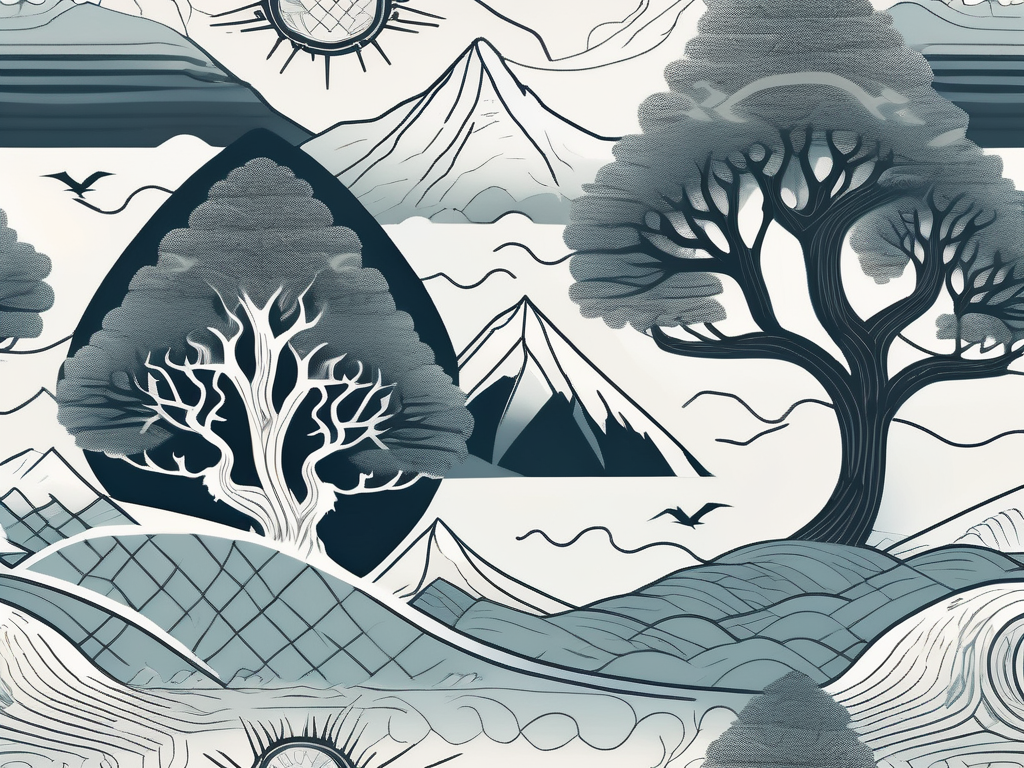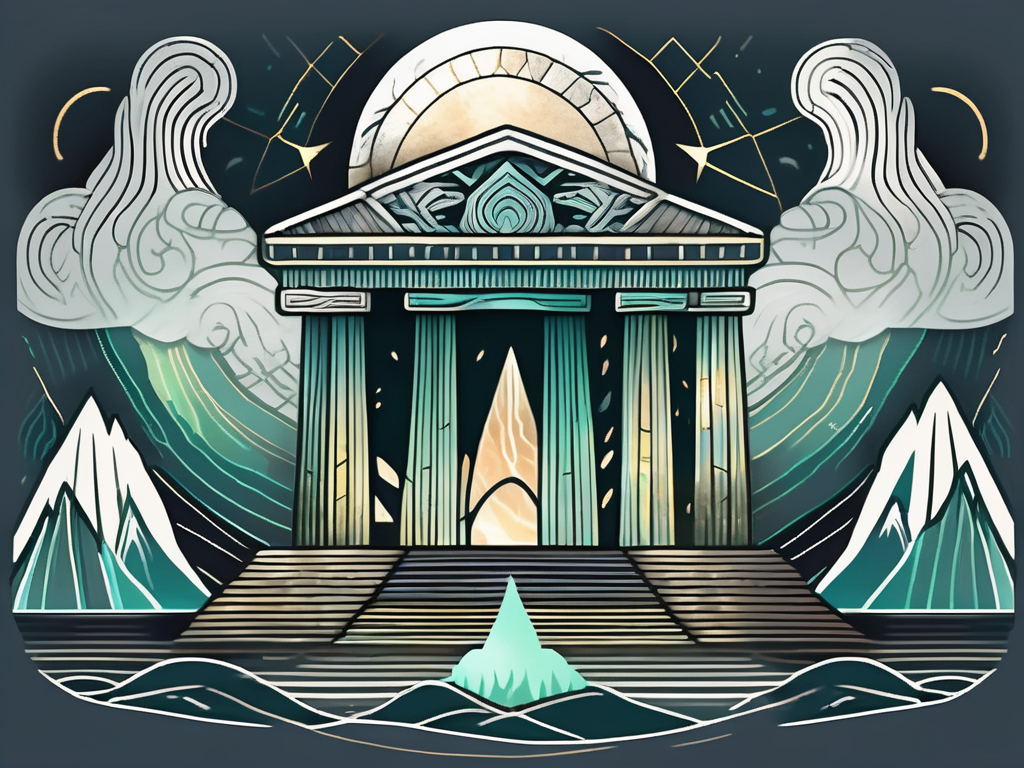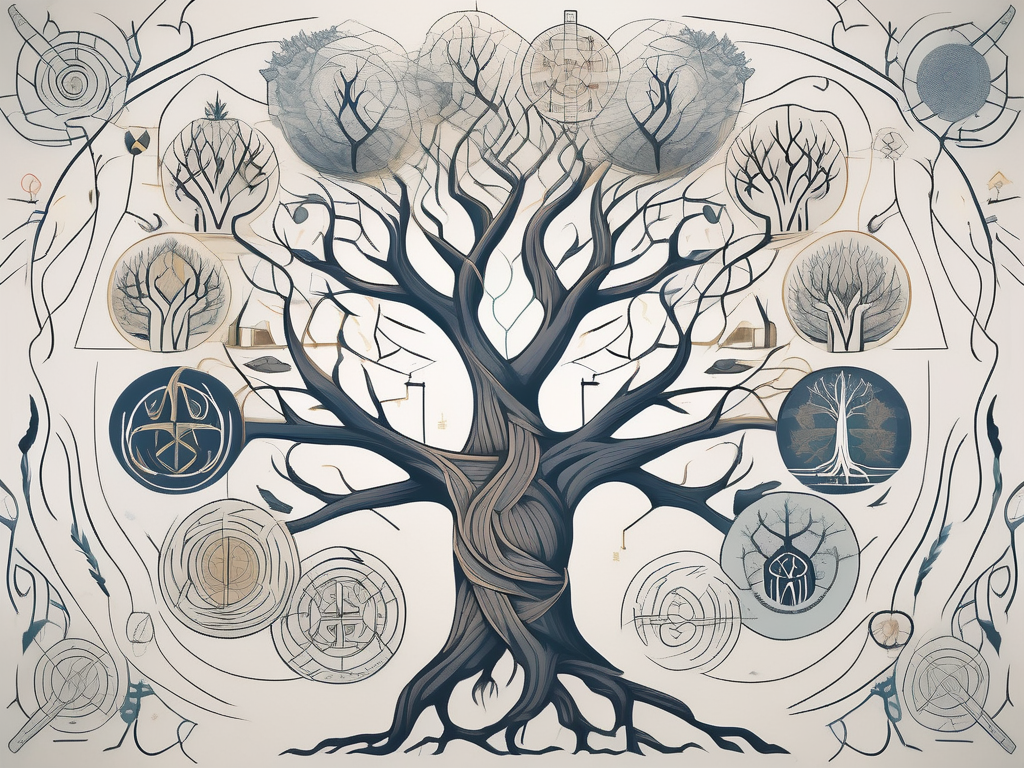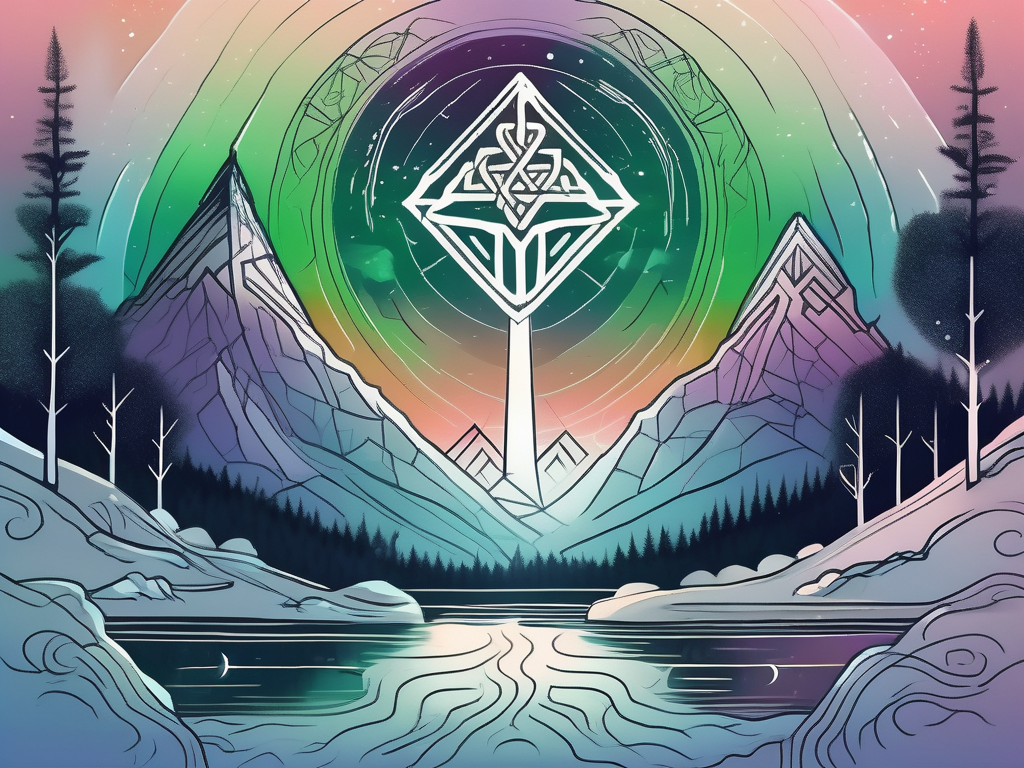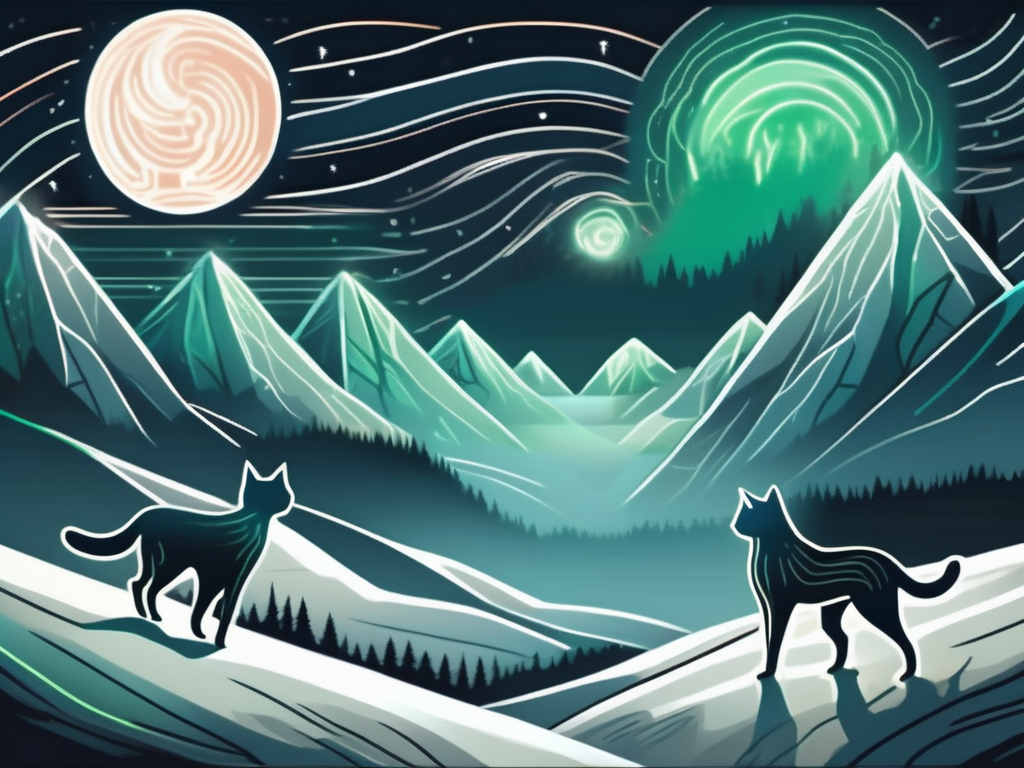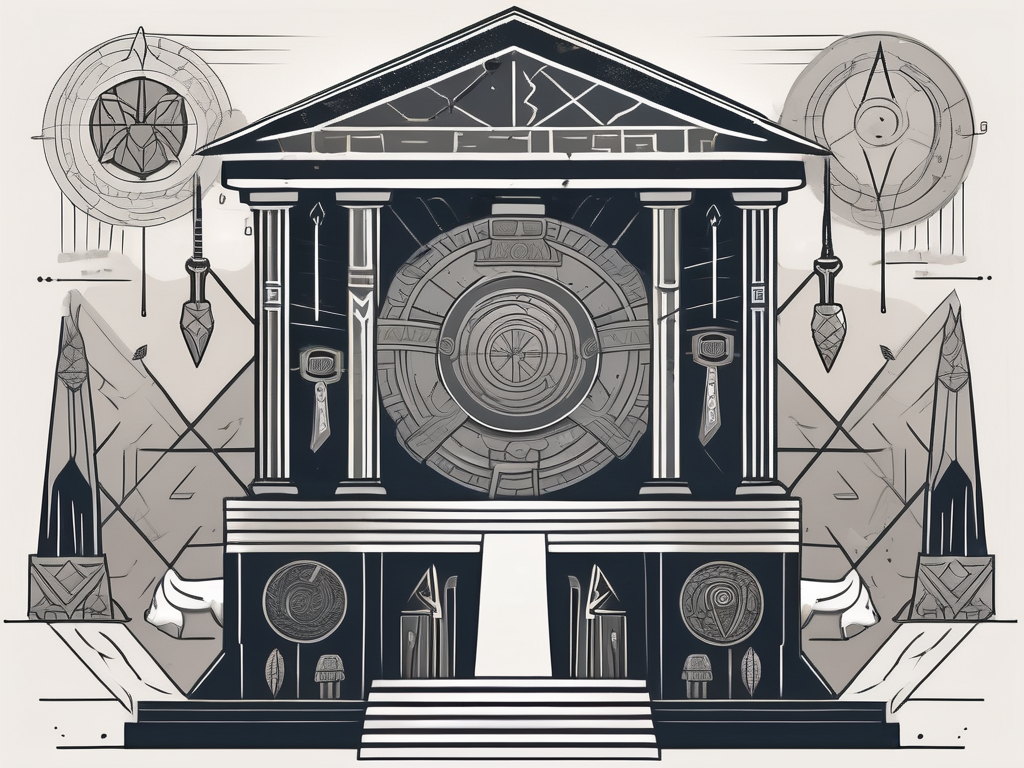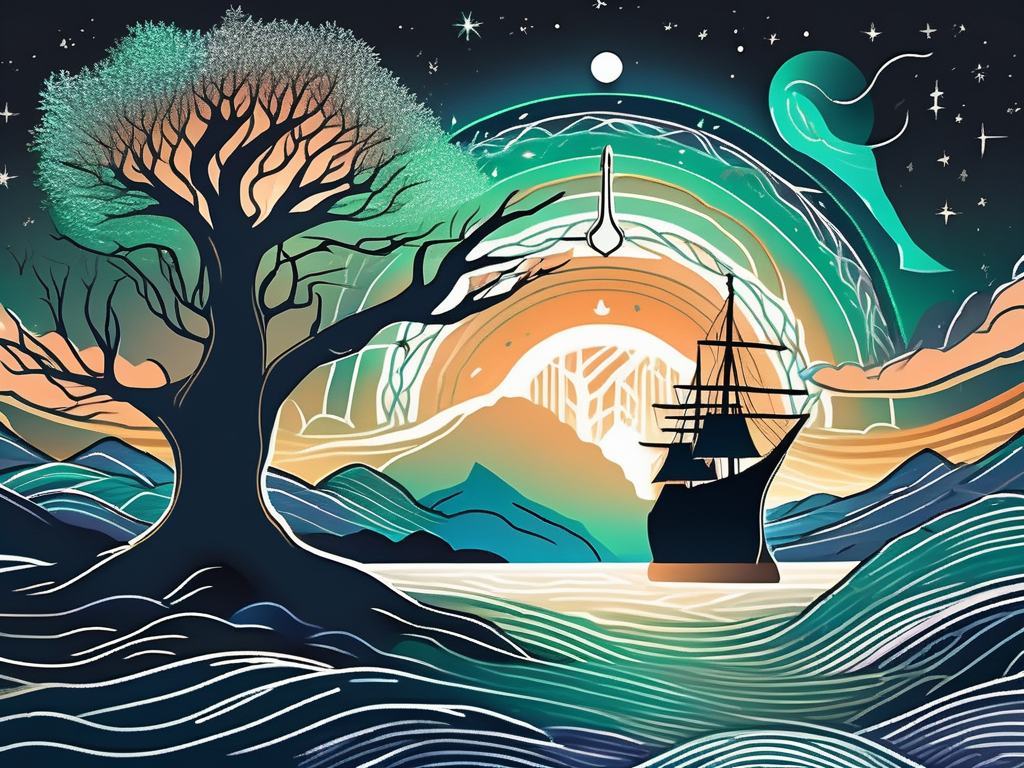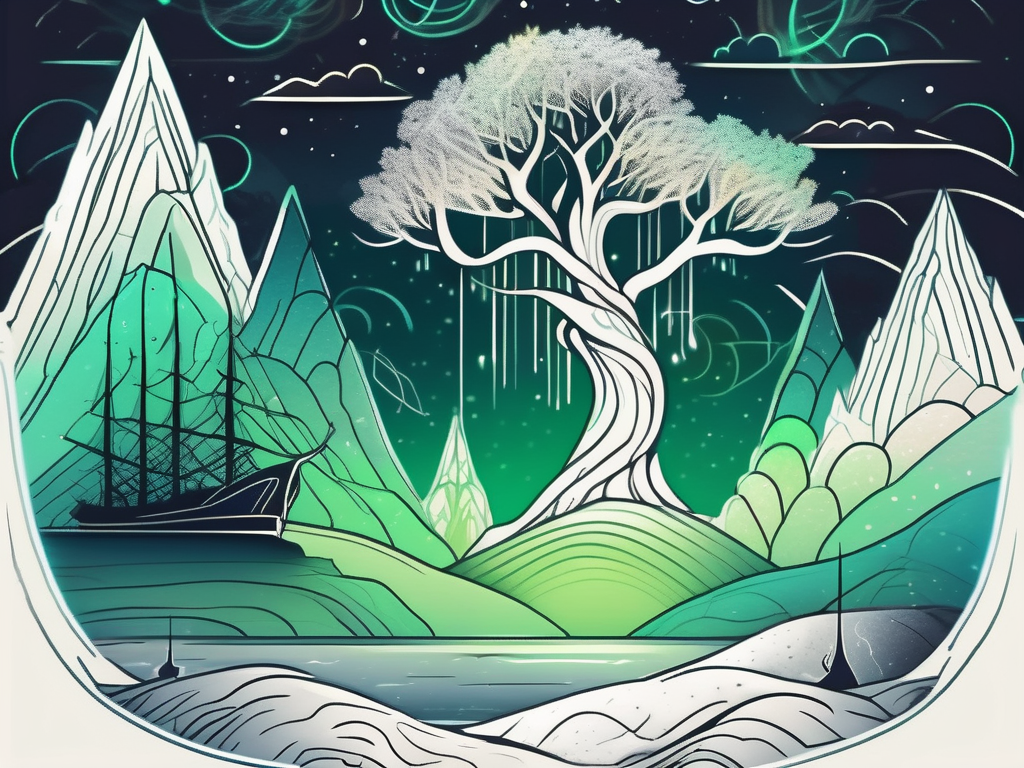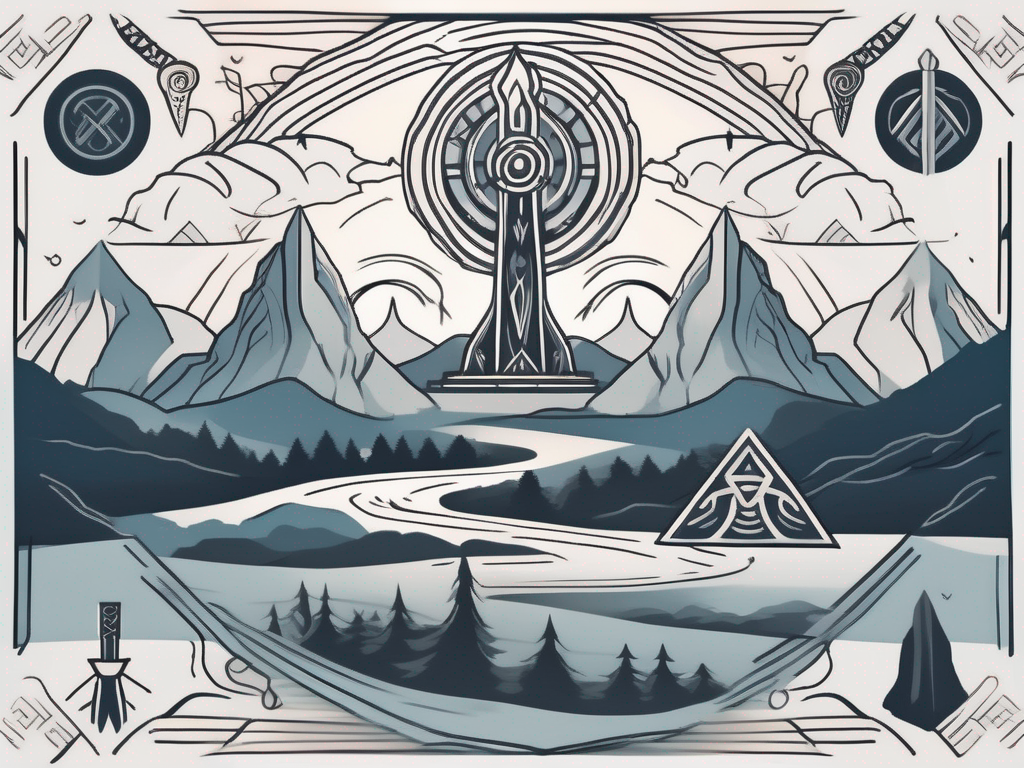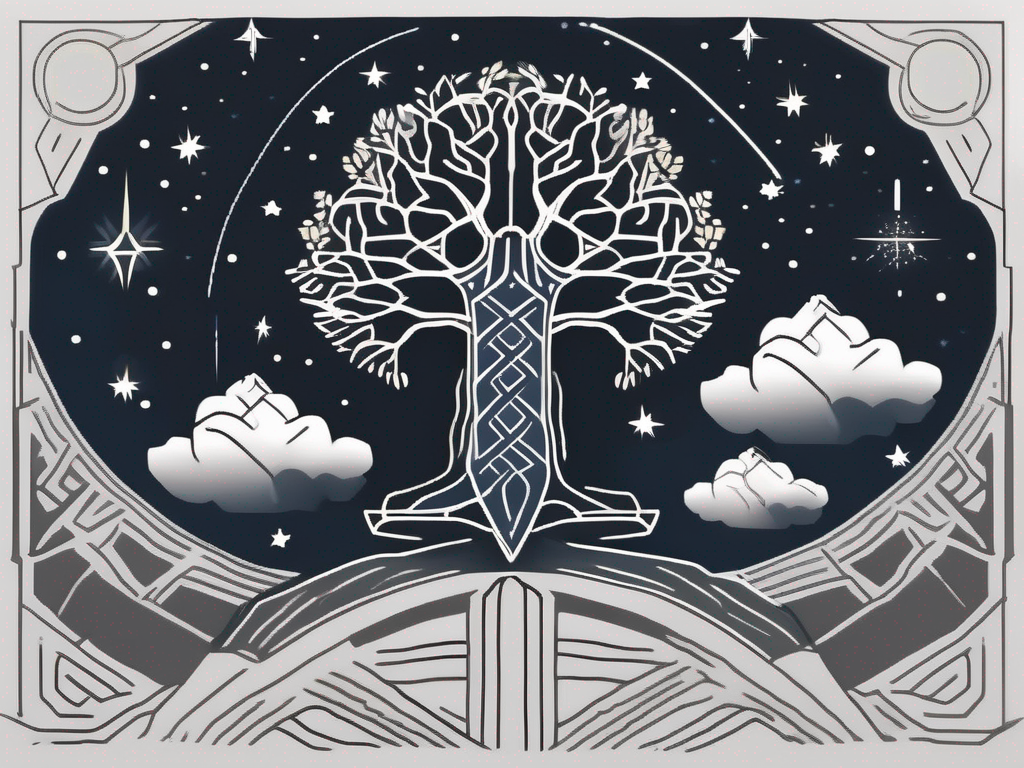Are you ready to embark on a journey through the captivating realm of Norse mythology? Get ready to uncover the secrets and powers of the mighty Norse gods. In this comprehensive guide, we will explore the origin, influence, and roles of these deities in Viking society. Join us as we delve into the pantheon of Norse gods, from the powerful Aesir to the lesser-known deities. Let’s begin our adventure into the realm of gods and goddesses!
Understanding Norse Mythology
Before we dive into the world of Norse gods, it’s essential to grasp the fascinating background of Norse mythology. Originating from ancient Scandinavian folklore, Norse mythology played a significant role in the lives of the Vikings. It shaped their beliefs, provided explanations for natural phenomena, and offered a glimpse into the interconnectedness of gods, humans, and the natural world.
The rich tapestry of Norse mythology is a reflection of the beliefs and values of the Norse people. It is a collection of captivating stories that have been passed down through generations, woven into the fabric of their culture. These mythological tales were not just mere entertainment; they were a way for the Vikings to understand the world around them and make sense of their place in it.
The Origin and Influence of Norse Mythology
Norse mythology has its roots in the Germanic tales and the pre-Christian beliefs of the Norse people. Passed down through generations, these mythological stories were intertwined with the harsh realities and adventures of the Viking Age. They offered solace, guidance, and entertainment to the fierce warriors who roamed the lands and seas of Scandinavia.
As the Vikings embarked on their daring voyages, exploring new lands and encountering different cultures, they brought their myths and legends with them. Norse mythology spread far and wide, leaving its mark on the lands they visited and influencing the beliefs of other civilizations. The tales of Odin, Thor, and Loki resonated with people from different backgrounds, captivating their imaginations and inspiring new stories.
Furthermore, Norse mythology heavily influenced and shaped various aspects of Viking society. It provided the framework for their moral code, influencing laws, and setting societal norms. The belief in the power and unpredictability of the gods gave the Vikings a sense of purpose and drove their actions both on and off the battlefield.
For the Vikings, the gods were not distant and detached figures. They were intimately involved in the lives of the Norse people, guiding and protecting them. Each god had a specific role and domain, affecting various aspects of human existence. From warriors seeking protection from Thor, the god of thunder, to farmers praying to Freyr, the god of fertility, the gods played a crucial role in the daily lives of the Norse people.
The Intricate Web of Norse Mythology
Within the vast pantheon of Norse gods, there existed a complex web of relationships and interactions. The gods were not solitary beings but were intricately connected to one another through blood ties, alliances, and rivalries.
At the center of this divine web stood Odin, the Allfather and ruler of Asgard. Odin was the wise and powerful god, associated with wisdom, magic, and war. He was the father of many gods, including Thor, the mighty god of thunder, and Loki, the mischievous trickster.
Thor, with his thunderous hammer Mjolnir, was the protector of both gods and humans. He was revered by warriors, who sought his strength and courage in battle. Thor’s thunderous strikes were believed to bring order and protection to the world, keeping chaos at bay.
Loki, on the other hand, was a complex and enigmatic figure. Known for his cunning and shape-shifting abilities, Loki often found himself at odds with the other gods. His mischievous nature led to both humorous and disastrous situations, testing the boundaries of the gods’ power and challenging their authority.
Other gods, such as Freyr, Freyja, and Baldr, each played their part in the intricate tapestry of Norse mythology. Freyr, the god of fertility, brought abundance and prosperity to the land, ensuring bountiful harvests and the continuation of life. Freyja, the goddess of love and beauty, brought joy and passion to the hearts of both gods and mortals. Baldr, the god of light and purity, was beloved by all for his kindness and benevolence.
These gods, along with many others, were not mere characters in a story. They were symbols of the forces of nature, embodiments of human virtues and vices, and mirrors of the human experience. Their stories were a reflection of the hopes, fears, and aspirations of the Norse people, reminding them of their place in the grand tapestry of existence.
The Pantheon of Norse Gods
Let us now turn our attention to the intricate web of gods that make up the Norse pantheon. Divided into two major groups, the Aesir and the Vanir, these gods each possess unique powers and characteristics.
The Aesir: The Main Gods of Norse Mythology
At the heart of the Norse pantheon are the Aesir, the primary gods who hold immense power and influence. Led by Odin, the Allfather and ruler of Asgard, the Aesir gods oversee various aspects of the mortal and divine realms. Thor, the mighty god of thunder, strikes fear into the hearts of his enemies with his enchanted hammer, Mjolnir. Freya, the goddess of love and beauty, enchants all with her radiance and captivating aura.
The Vanir: The Secondary Gods of Norse Mythology
In addition to the Aesir, the pantheon includes the Vanir, a group of gods associated with fertility, prosperity, and nature. These gods, including Freyr and Njord, bring an abundance of blessings to the realm of the Vikings. They ensure bountiful harvests, successful voyages, and fruitful unions.
The Powers and Domains of Major Norse Gods
Now let’s take a closer look at the remarkable powers and diverse domains of some of the most prominent Norse gods.
Odin: The Allfather’s Powers and Influence
Odin, the wise and enigmatic Allfather, possesses an array of powers that make him the most revered god in Norse mythology. He is associated with war, wisdom, poetry, and magic. Odin’s relentless pursuit of knowledge led him to sacrifice his eye in exchange for the wisdom of the ages. With his ravens, Huginn and Muninn, who bring him news from all corners of the world, Odin’s wisdom is unparalleled.
Thor: The Thunder God’s Might and Role
Thor, the fearless and robust son of Odin, wields his trusted weapon, Mjolnir, with unparalleled might. As the god of thunder and lightning, Thor protects Asgard and Midgard from the forces of chaos and giants, often battling fearsome creatures of the nine realms. His strength and bravery make him the protector of all, while his thunderous strikes remind the Vikings of the power of nature.
Loki: The Trickster God’s Deception and Chaos
Not all gods are benevolent, and Loki, the cunning trickster god, stands apart from the others. While Loki possesses shape-shifting abilities and a silver tongue, his actions often lead to chaos and calamity among gods and mortals alike. Despite his mischievous nature, Loki’s role in Norse mythology is vital, as he challenges the status quo, pushing gods and humans to question and adapt.
Lesser-Known Norse Gods and Their Powers
Beyond the prominent gods, Norse mythology features lesser-known deities with unique powers and characteristics.
Freyr: The God of Fertility and Prosperity
Freyr, the gentle and generous god of fertility, presides over crops, harvests, and abundance. As the brother of Freya, he brings prosperity and prosperity to the lives of mortals. The Vikings fervently pray to Freyr, seeking his blessings for fertile lands and prosperous lives.
Heimdall: The Guardian of Asgard
As the watchman of the gods, Heimdall keeps a vigilant eye on the realm of Asgard, ensuring its safety from any intruders. With his keen senses, Heimdall can hear the grass grow and spot any threat approaching from miles away. The gods depend on Heimdall’s unwavering watchfulness to preserve the balance between the realms.
The Role of Goddesses in Norse Mythology
It is not only the gods who hold sway over the cosmic order; the goddesses play a significant role in Norse mythology as well.
Freya: The Goddess of Love and Beauty
Freya, the radiant goddess of love and beauty, captivates all who encounter her. With her enchanting presence, she brings love, desire, and fertility to both gods and mortals. Freya’s charm is unmatched, and her influence extends beyond the realms of romance.
Frigg: The Goddess of Wisdom and Foreknowledge
Frigg, the wise and intuitive goddess, possesses great knowledge and the ability to glimpse the future. As the wife of Odin, she serves as the queen of Asgard and offers guidance and wisdom to both gods and mortals. Frigg’s foresight and keen intellect make her an invaluable figure in the Norse pantheon.
As we conclude our comprehensive guide to the powers and realms of Norse gods, we hope you’ve gained a newfound appreciation for the rich tapestry of myths that shaped Viking culture. From the mighty Aesir to the lesser-known deities, each god and goddess fulfills unique roles within the intricate web of Norse mythology. Whether seeking protection, fertility, or wisdom, the gods and goddesses of the North will forever hold their place in the hearts and imaginations of those who explore their enthralling tales.

